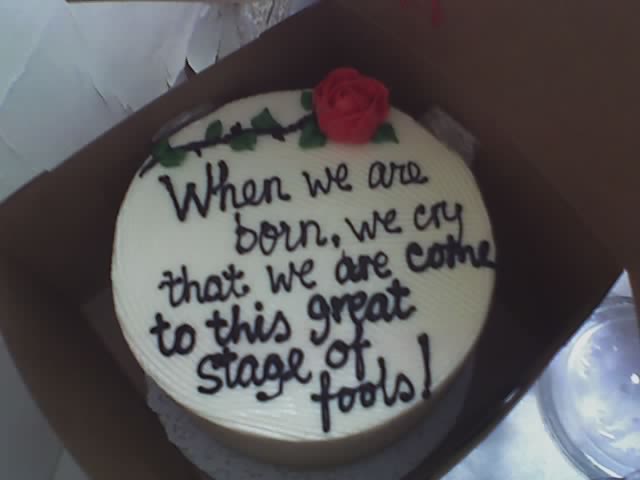Ro has a thought-provoking post about the relationship between learning something and knowing it. Before I address that question, it might be worth taking a moment to consider what it means to know something.
What do we mean when we say we know something? For the individual, it might be the same as saying we unequivocally believe it. But is that enough? If Iago believes his wife has been unfaithful, and he has no evidence to support his belief, does that count as knowledge? Probably not.
Socrates argued that a belief must be justified to be considered knowledge. Othello might say that he knows his wife Desdemona has been faithful, because he has reason to believe in her love and trustworthiness. His belief is justified. But that doesn’t necessarily make it true, and so that probably doesn’t count as knowledge either. Knowledge must be both true and justified.
When we say someone else knows something, that might mean that they believe it and we believe it too. If Iago uses manufactured evidence to manipulate Othello into believing that Desdemona has been having an affair with Cassio, Othello can say that he knows that Desdemona has been unfaithful, because his belief is justified by evidence that has been presented to him. But we would not say that Othello knows it. He still believes it, but we do not.
Which brings us to the Gettier problem. Imagine that while Othello is being manipulated by Iago, Desdemona has been secretly having an affair with the Duke. Othello makes the statement that he knows Desdemona has been unfaithful. Does he know it? This time, his belief is both true and justified. And yet Gettier would not count this as knowledge, because Othello’s belief, while true and justified, is based on false evidence. He has no knowledge of the actual affair. Robert Nozick would point out that if the statement weren’t true, Othello would still believe it.
Now let’s go back and look at the question originally posed by Ro, which has to do with the relationship between knowledge and learning. If I say I learned something, that means I know it, which means I believe it. If I say you learned something, that means you believe it and I believe it. For example, President Bush got into a bit of trouble for including the following in the 2003 State of the Union address:
The British government has learned that Saddam Hussein recently sought significant quantities of uranium from Africa.
By citing the British government, Bush’s speechwriters sought to insulate the administration from claims they already knew were false. But by using the word “learned” they implied the word “knew” which means that Bush was essentially saying that he also believed that the statement was true. It was later discovered that the statement was not true, and that the Bush administration was aware it was not true at the time the speech was written. Saying “The British government has learned” did not provide the out they were hoping it would.
Ro’s other question was whether knowing something implies that one has learned it. A strict empiricist might say yes, but even John Locke allowed for some a priori knowledge gained through reason alone. The classic example is from René Descartes: Cogito ergo sum. I think, therefore I am. Is this knowledge? Was it learned?
Finally, I can also attest that it is possible to have learned something and not know it. I demonstrate this condition several times every day.

